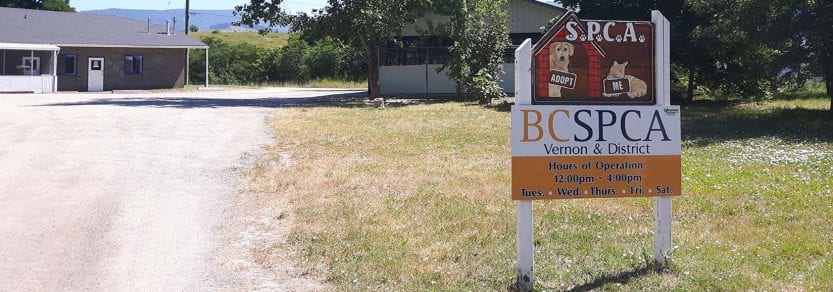An Armstrong man won’t be reunited with the dog he lost custody of months earlier when the BCSPCA seized it due to Ivermectin poisoning.

Romeo Leduc’s dog Rufus fell seriously ill and was taken to a veterinary hospital on Sept. 7. He had been vomiting, was lethargic, had a sore abdomen and was not “moving or responding appropriately,” according to a decision from Pawan Joshi, presiding member of the B.C. Farm Industry Review Board.
According to the veterinary clinic the dog had been taken to, Leduc refused to either hospitalize Rufus or to provide any outpatient care, which was recommended by the treating veterinarian, Dr. Amy Roberts.
As such, the dog was eventually released to the Leduc on a “Against Veterinarian Medical Advice” basis, according to Joshi’s Nov. 15 decision.

Five days later, Special Provincial Const. Brenna Waldorf contacted Leduc to confirm Rufus’s condition.
“Waldorf explained her concerns regarding a lack of veterinary care and advised that it was illegal to allow an animal to remain in distress,” Joshi wrote. “(Leduc) denied that any further veterinary care was required for Rufus and hung up the phone.”
That same day, Waldorf went to Leduc’s home with “ongoing concerns for the health and well-being of Rufus,” Joshi wrote.

Get breaking National news
There she found the dog outside. When she walked up, Rufus approached her in a wobbly fashion and “he appeared to be tremoring and disoriented.”
“Rufus was drooling excessively, was lethargic, and his abdomen and back end were extremely sensitive,” Joshi wrote.
“Rufus tried to bite Const. Waldorf when she palpated the area of his back and abdomen.”
Waldorf decided then that Rufus was in critical distress and, leaving a note explaining what happened on the home, took the dog to a veterinarian hospital, where he received “lifesaving, emergency medical treatment.”
The treating veterinarian, Dr. Jennifer Watt, noted that Rufus was wobbly and weak on intake and was also blind.
“She conducted bloodwork and radiographs and determined that Rufus was suffering from Ivermectin toxicity and began treatment with intralipids,” reads the decision. “Rufus made a full recovery while he was hospitalized and was discharged on Sept. 14.”

Waldorf went back to the house to talk to Leduc and his sister Toni Leduc and explained that the dog was in protective custody.
On Sept. 29, the BCFIRB decided that Rufus would not be returned to Leduc and on Oct. 3, Leduc filed an appeal.
It was then Toni Leduc who spoke to the situation, explaining that they didn’t believe Rufus was struggling from Ivermectin poisoning. Rather, she said, he had eaten some grapes that were believed to have been fermented and that was causing what looked like drunken movements.
She also said she gave Rufus only a small dose of Ivermectin, because she was concerned that he might have eaten something from the garbage.
Ivermectin, Toni Leduc said, is good for dogs to keep parasites out of the dog’s body, though Sept. 11 was the first time she’d administered it.

She also said the best vaccine for a dog is ensuring that a dog has a healthy diet and exercise, she does not believe in chemical interventions to the body and that it is best to let the body heal naturally.
And she told the appeal panel that she was of the view that Rufus would have healed naturally and while she had read research articles on natural healing, she did not have any formal education in natural science or in animal science.
None of this swayed the panel.
“The Panel orders that pursuant to section 20.6 of the PCAA that the Society is permitted in its discretion to destroy, sell or otherwise dispose of Rufus, with the obvious hope and expectation that Rufus will be adopted,” Joshi wrote.
“The Panel finds the Appellant is liable to the Society for costs of care of Rufus, in the amount of $1,866.90, this being part of the veterinary costs incurred by the Society as well as part of the costs associated with the seizure, housing, care and feeding of Rufus.”








Comments